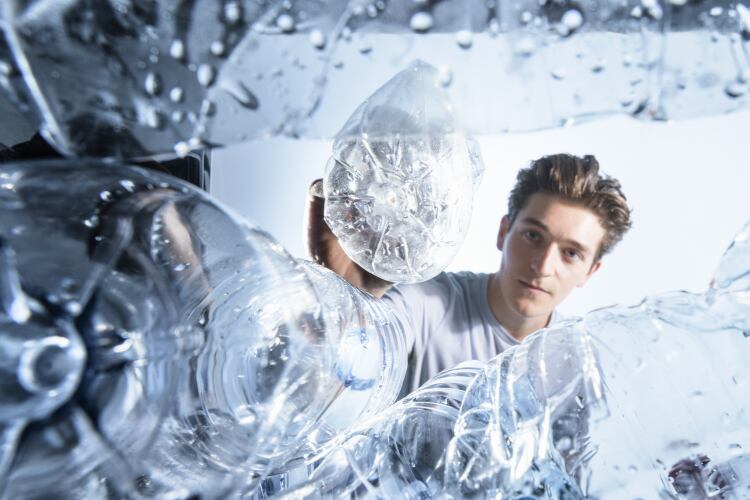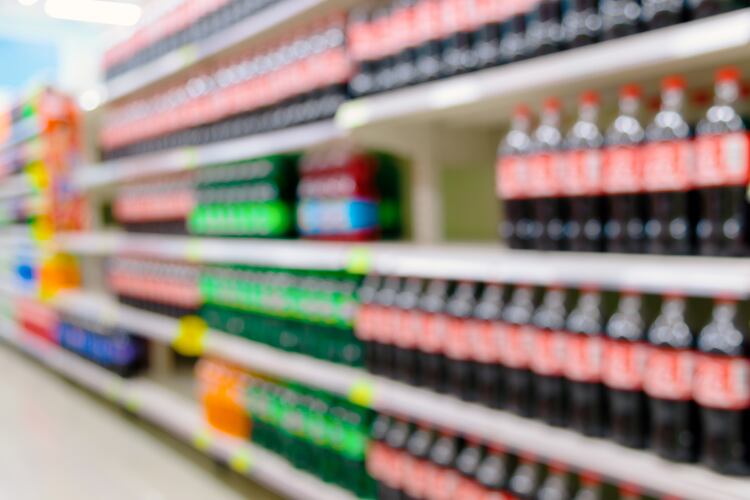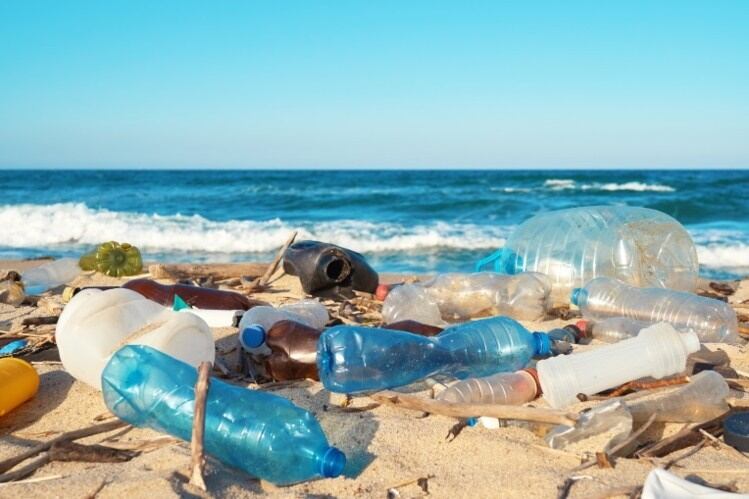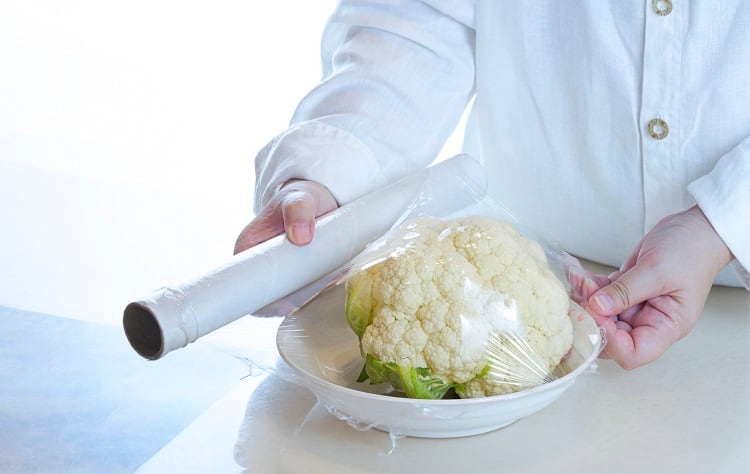Globally, over 460 million tonnes of plastic is produced every year. Rising populations and incomes are driving a ‘relentless increase’ in the amount of plastics produced globally, according to a recent report from OECD. However, policies to curb leakage into the environment are ‘falling short’. Only 9% of the plastic produced today is successfully recycled, the Global Plastics Outlook revealed. The rest ends up as ‘mismanaged’ waste that is either exported, burnt, dumped in landfills, or leaks into nature due to ineffective waste management infrastructure.
While global food and beverage manufacturers have set themselves multiple targets on sustainable packaging within their ESG agendas, 90% of these are not on track to be met by 2025, according to research by Gartner. The WWF predicts that global plastic production will more than double by the end of the decade.
rePurpose Global wants to help bridge this gap between ambition and action and ‘change this reality’, co-founder and advocacy chief Peter Wang Hjemdahl explained. The organisation has 14 impact projects across Colombia, Ghana, India, Indonesia and Kenya that finance critical plastic recovery infrastructure in areas - both urban and rural - where it is lacking, working to incentivise collection of low-value plastics.
“The areas where rePurpose Global projects are based have some of the highest rates of plastic leakage into nature, and so rePurpose’s work involves capturing and recovering plastic before it is dumped, openly burned, or pollutes natural ecosystems. We do this while positively impacting the lives of waste workers in those regions,” Hjemdahl elaborated.
Plastic pollution: A glocal challenge
The problem of plastic pollution is both global and local in nature, meaning that a nuanced approach to developing solutions on the ground must sit alongside an understanding of worldwide drivers and impacts.
Detailing its regional dimensions, the sustainability expert noted: “The plastic problem varies considerably between countries and types of plastic. For example, in India recycling of PET plastic (what most plastic bottles are made of) might be as high as 90% while in Ghana it is just 2%. At rePurpose Global each of our community-centered projects is designed to deal with the most pressing plastic issues for each specific region. For example, Project Fann Epo in Ghana collects PET as its ‘additional’ plastic (plastic that would not have been collected without the intervention), due to the low collection and recycling rates in the country.”
However, he stressed, we must not lose sight of the global dimensions of the plastic problem. “Many large companies have value chains that touch every corner of the globe, and plastic pollution is certainly a global challenge that requires action from businesses and other global players… Plastic pollution is a truly global problem. We all have a role to play to alleviate the plastic epidemic. Collection and recycling infrastructure is lacking across the globe, and there is a funding gap of an estimated $30 billion per year to develop adequate waste management infrastructure.”

This has serious detrimental consequences for both the natural world and local communities. “In countries like India and Indonesia, this lack of infrastructure results in higher incidence of plastic leaking into the natural environment. It also creates informal, but often exploitative, work for waste pickers,” Hjemdahl continued. “rePurpose Global’s plastic credit financing is designed as a response to this funding gap, while protecting oceans and other natural ecosystems and supporting the livelihoods of waste workers.”
Infrastructure – which essentially isn’t up to scratch anywhere in the world – is just ‘one part of the equation’. We also need to look at consumption and use levels, according to Hjemdahl.
“The amount of plastic we’re producing and consuming continues to grow rapidly each year. Countries like the US, UK, Germany, Japan and Canada continue to have far higher per capita plastic use than countries in the global South like India or Indonesia. Serious efforts from all stakeholders are required to curb the overall use of virgin plastics, as well as the redesign of products and packaging to use alternative materials, recycled plastic resin, or more recyclable polymers.”
The Plastic Reality Project: A ‘driving force’ for action on plastics
In order to foster a greater understanding of the complex and interconnected issues contributing to the rising tide of plastic pollution, rePurpose has launched the Plastic Reality Project with support from the Sustainable Ocean Alliance and the GreenBiz Group. The new initiative aims to upskill 5,000 sustainability leaders in the next five years on tackling plastic pollution through educational expeditions, corporate training programs, peer mentoring networks, and a competency-based certification scheme. It’s first expedition took place last month.
“Through the Plastic Reality Project rePurpose Global’s aim is to arm corporate leaders and environmental practitioners with knowledge and experiences to better fight plastic pollution. The inaugural project saw leaders from Target, Riverside Natural Food, Coca-Cola, Pet Sustainability Coalition, Sustainable Ocean Alliance, World Economic Forum, Emerson Collective and GreenBiz all come together in India across two states - Tamil Nadu and Kerala - to gain knowledge and experiences to help fight plastic pollution and shape plastic reduction efforts towards reduced inefficiencies, broader inclusivity, and greater impact,” Hjemdahl reflected.

What fresh insight did business leaders gain from the experience?
“Four of the biggest takeaways from their experience on the ground that the attendees spoke about were, firstly, the human aspect of waste management. There are people and communities who face the brunt of the plastic pollution crisis, and also the innovators and waste workers on the ground who are diligently collecting, sorting and creating value in discarded waste. Secondly, the global nature of plastic and the responsibility on everyone to be part of the solution. When a piece of plastic leaves our homes, stores or even waste management facilities, it often continues to have an impact on the environment. Thirdly, the urgency of the problem, and the need to mobilize and make more of an impact right now. And finally, the collaborative effort that is needed - it must be a concerted effort by all: consumers, brand managers, governments, private players and innovation players; to take responsibility and take action now.”
Hjemdahl hopes this kind of initiative will raise awareness and act as a rallying call to action – as well as providing business leaders with the tools they need to make a real difference around the world.
“Plastic pollution in another part of the world is not automatically someone else’s responsibility: we all have a part to play. Businesses often have value chains spanning across the world and can do more to take action on their plastic footprints. As consumers we can reduce our plastic consumption, recycle well, and demand change. Most people will throw plastic in the bin and won’t think about it again, but the opaqueness of our waste management systems mean that there are no guarantees that the plastic won’t end up being incinerated, sitting in the ocean for the next 1000 years, or polluting once-pristine beaches in South East Asia.
“Plastic waste not only has a devastating impact on marine life and ocean ecosystems but also on human life. It is estimated that up to 1 million people a year die from mismanaged plastic waste, and there are growing concerns around microplastics appearing everywhere from drinking water supplies to human blood.
“A global coalition of action on plastic is required to make change, and – through activities including the Plastic Reality Project - we are aiming to be a driving force in that movement.”




